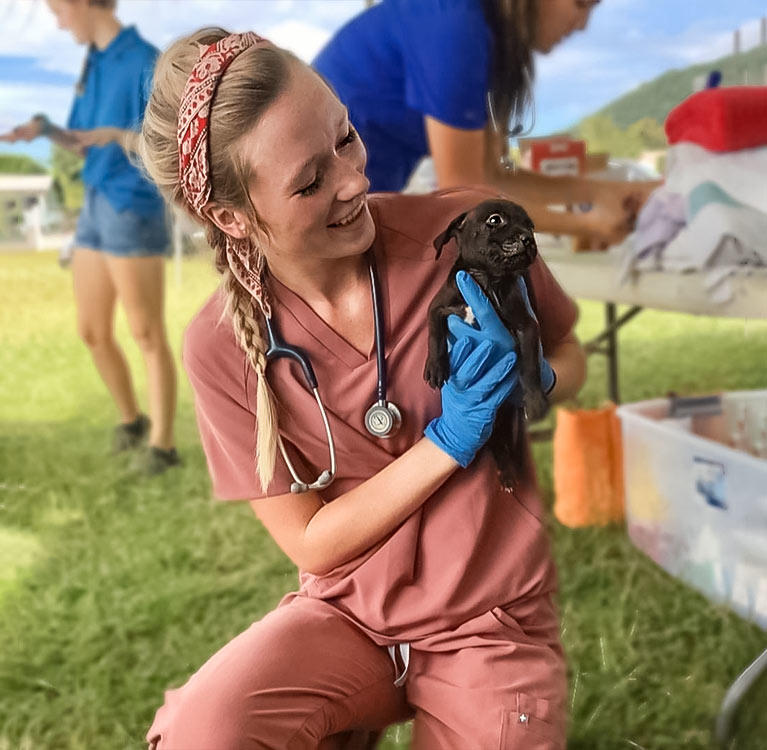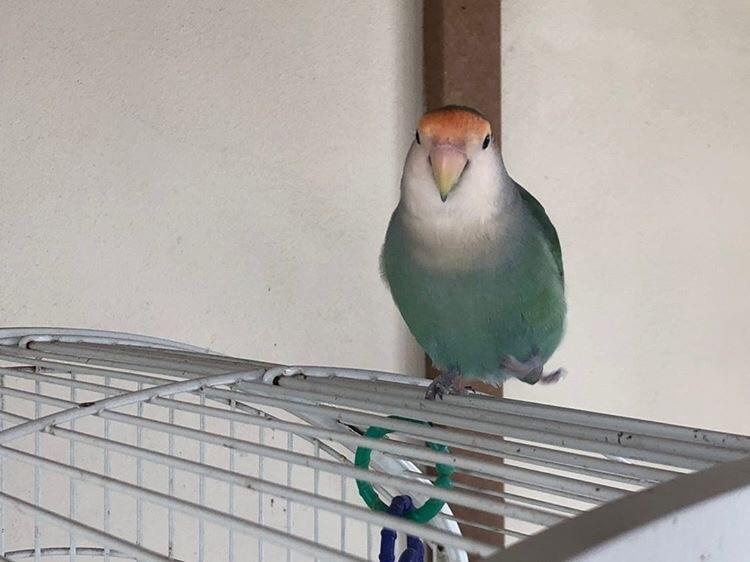GRE for Veterinary School — Find out how much GRE scores for vet school admission matter and what other factors you should keep in mind to make you stand out.
You have wanted to be a veterinarian for as long as you can remember. You’ve done your research on veterinary schools you’d like to attend, and now you’re ready to start applying. I’m sure you’ve noticed that some schools require the Graduate Record Examination (GRE). And now you’re getting nervous.
DOES VET SCHOOL GRE SCORES REALLY MATTER?
Maybe you’re an anxious test taker and your results never quite seems to reflect what you really know. And that has you wondering how much weight the admissions committee puts into vet school GRE scores. Could a lower score hurt your chances of getting into your vet school of choice? What about your other attributes including your GPA, experience working with animals, and passion for the field?
While test requirements vary depending on the vet school, some schools who require the GRE have a recommended minimum score for you to strive for. Test prep is key, and we encourage you to take a few practice exams. It can make the real test less intimidating and can increase your overall score. And while there isn’t a set number that will guarantee your acceptance at your top school of choice, some schools share their average GRE scores for vet school and may provide you with “typical” applicant profiles.
IMPORTANT FACTORS BEYOND GRE SCORES FOR VETERINARY SCHOOL
Veterinary programs look at a mix of criteria when evaluating each applicant. At Ross University School of Veterinary Medicine, we take a holistic view of the admissions process, reviewing not just grades and your vet school GRE scores, but also giving weight to your experience, perseverance, and passion to become a veterinarian.
To increase your chances of getting into your veterinary school of choice, it’s a good idea to focus on strengthening the other areas of your application.
Your GPA
A lot of schools have minimum Grade Point Average (GPA) requirements, both for your science classes and your overall GPA. More emphasis will be placed on your GPA for your undergraduate prerequisite courses. Focus on your core science and math classes to help boost your vet school preparedness. Worried that your GPA is on the lower side? Don’t count yourself out. Re-focus on the prerequisites you still may need to complete, and remember, your GPA is just one part of your application portfolio being evaluated by the admissions committee.
Your Experience Working with Animals
Vet schools want to see it! Documenting your experience working with animals may be the most important part of your application. A host of schools require a minimum of at least a few hundred hours, some may expect even more. If you can, try to gain experience working with a variety of animals, including large and small, as some schools may wish to see a breakdown of your experiences.
When looking at how to get into vet school, note if the school requires your hours to be completed under the supervision of a practicing veterinarian or if it will consider general animal experience such as volunteering at your local animal shelter. At Ross Vet, we prefer your experience has taken place under the supervision of practicing veterinarians, but comparable experience will be considered.
Be sure to consider and document ALL your relevant animal experience. Yes, that includes any research, or clubs you’ve participated in like 4-H and high school Vet Club. Veterinary school programs like to see a variety of experiences. Think of it this way, you can earn straight A’s and have high vet school GRE scores, but those don’t really matter if you’re not comfortable around a variety of animals in a variety of situations.
Your Letters of Recommendation
You’re going to need letters of recommendation to apply for vet school. Once you know how many letters you need, it’s important to then choose the right evaluators who can speak to your critical thinking skills, your dedication to the profession, and your positive qualities. Admissions committees want to hear from someone who has worked with you and can vouch for your skills and passion for the career. Most schools prefer letters from veterinarians as well as past instructors. Reach out early to your evaluators and be sure you provide them with any additional information that can strengthen their letter.
Your Personal Essay
Whether you apply through the Veterinary Medical College Application Service (VMCAS)or directly through your school of choice, you may be required to submit a personal essay. Typically, you will respond to one to three essay prompts related to your career goals and personal qualities. Your admissions committee wants to hear about your future goals, how you can make an impact as a veterinarian, and how your qualities make you the best candidate to pursue a career in veterinary medicine.
Your essays should reflect on your passion for animals and demonstrate why you would be a good vet. Be sure to use specific examples. All that experience you gained working with animals should give you a good place start.
Your Interview
After you submit your completed application, you could be invited for an in-person or virtual interview with the admissions committee. Now’s the time to really step up your game. Start practicing for your interviews. Practice makes perfect and schools want to see you shine in your interview. The more you practice, the more confident you’ll come across to the admissions committee.
As you begin to prepare for your interview, think about what you’d like to highlight in your conversation. Have you received any awards or honors? Maybe you have held a leadership position or participated in an extracurricular activity that can speak to your perseverance or demonstrates your work ethic. Showcase your accomplishments in and outside of school, and don’t forget to dress to impress!
So, back to your original question, “Do vet school GRE scores matter?” GRE scores do matter, but they are just one component of your overall application. Veterinary schools want to choose students who will make great veterinarians and looking at your entire application portfolio is the best way to evaluate for this. The stronger your overall application, the better your chance to get accepted into your veterinary school of choice.
Learn more about Doctor of Veterinary Medicine (DVM) degree program requirements:








